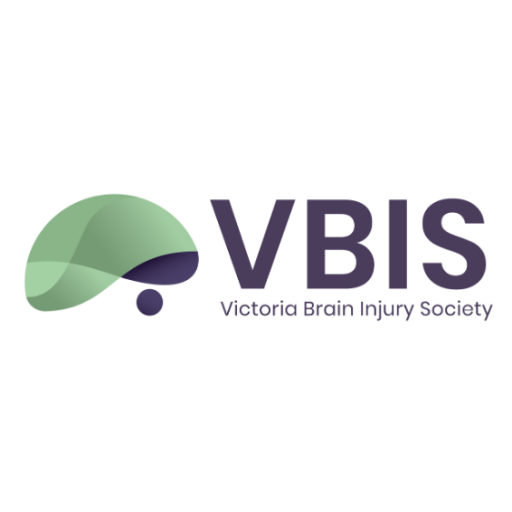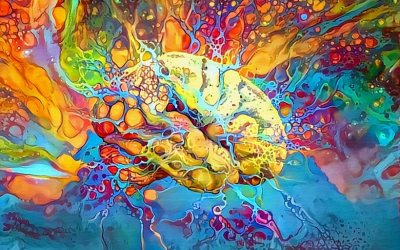by Adam Scott
Understanding Post-Concussion Syndrome: Why Some Recoveries Take Longer
Not all concussions heal within a few weeks. For some, symptoms can linger, sometimes lasting for months or even longer. This can affect everything from work to relationships to basic daily functioning. This is known as Post-Concussion Syndrome (PCS), and while it’s more common than many realize, it often goes undiagnosed or misunderstood.
At the Victoria Brain Injury Society (VBIS), we regularly hear from individuals who feel lost in the recovery process. “Why do I still feel this way?” is a question we hear often. This blog explores what PCS is, why it happens, and how those affected can find the support they need to move forward.
What Is Post-Concussion Syndrome (PCS)?
Defining PCS and How It Differs from a Typical Concussion
Post-Concussion Syndrome refers to a group of symptoms that persist weeks or months after the initial concussion. While the average recovery time for a concussion is about 1 – 4 weeks, PCS can last much longer, sometimes up to a year or even more.
What sets PCS apart from a “normal” concussion recovery is that the brain may appear structurally healed on scans, but symptoms continue to interfere with daily life. This disconnect can be confusing and frustrating for both survivors and those around them.
Common Symptoms of PCS That Can Linger for Months
PCS symptoms vary widely, but some of the most common include:
- Persistent headaches
- Dizziness or balance problems
- Sensitivity to light and noise
- Difficulty concentrating or remembering things
- Fatigue that doesn’t improve with rest
- Sleep disturbances
- Anxiety, irritability, or depression
- Feeling “foggy” or detached
These symptoms can fluctuate in intensity, making it difficult to plan ahead or maintain routines as they can affect every aspect of a person’s life.
Who Is Most at Risk?
While anyone can experience Post-Concussion Syndrome, some individuals are more likely to develop lingering symptoms. Understanding the risk factors can help survivors, families, and healthcare providers better anticipate the need for ongoing support and intervention.
Contributing Factors: Repeated Injury, Stress, and More
Several factors can increase the likelihood of developing PCS:
- History of Previous Concussions: The more concussions someone has had, the higher the risk of prolonged symptoms.
- Mental Health Conditions: Pre-existing anxiety, depression, or post-traumatic stress disorder (PTSD) can make the brain more vulnerable to extended recovery timelines.
- High-Stress Environments: Ongoing stress, whether from work, caregiving, or other pressures, can exacerbate PCS symptoms and interfere with healing.
- Lack of Immediate Care: Delayed or inadequate concussion management following the initial injury can set the stage for longer-lasting effects.
These factors don’t mean someone will develop PCS, however, they can make recovery more complicated.
How Age, Gender, and Support Access Affect Recovery
Post-Concussion Syndrome can affect anyone, but research shows that age, gender, and access to care all play a role in recovery. Older adults may take longer to heal due to natural aging in the brain, and people who are predisposed to anxiety also have an increased risk factor. Access to timely support, such as concussion clinics, therapy, and community programs like those offered at VBIS, are also crucial and can make a meaningful difference. Still, PCS doesn’t always follow a predictable path, which is why individualized care and consistent support are key to recovery.
What to Do if You Think You Have PCS
Recognizing that you may be experiencing Post-Concussion Syndrome can be both overwhelming and frightening. Many survivors go weeks or months feeling confused, frustrated, or dismissed, unsure why they still “don’t feel right.” If that sounds familiar, you’re not alone, and you don’t have to figure it out by yourself.
When to Talk to a Doctor
If you’re experiencing persistent symptoms following a concussion; such as headaches, memory issues, fatigue, or emotional changes, it’s important to seek medical attention. Don’t wait until things feel unmanageable. A family doctor can help rule out other conditions, make referrals to specialists, and begin the process of documenting your symptoms for treatment and support purposes.
Be honest about how the symptoms are affecting your life, even if they feel small or hard to describe. The more detailed you can be, the more likely you are to get the help you need.
Support Services Available at VBIS
At VBIS, we offer a variety of services for people experiencing PCS or ongoing concussion symptoms. These include:
- One-on-one support sessions
- Peer groups for sharing experiences and strategies
- Educational resources for understanding brain injury
- Letters of support for local specialists and community services
You don’t need a formal diagnosis to reach out. If you’re struggling, we’re here to listen and guide you toward the right support. Sometimes, just knowing you’re not alone can be the first step toward healing.
Practical Tips for Managing Daily Life with PCS
While there’s no one-size-fits-all solution, small changes can make a big difference. Some practical strategies include:
- Pacing yourself: Break tasks into smaller steps and give yourself more time to rest.
- Creating a routine: Structure can reduce stress and make symptoms more manageable.
- Limiting sensory overload: Reduce exposure to bright lights, loud noises, and crowded environments.
- Journaling symptoms: Tracking what worsens or relieves symptoms can help guide care and adjustments.
- Asking for help: Whether it’s at work, school, or home, don’t be afraid to ask for accommodations or explain your needs.
Managing PCS is often about learning to adjust and live differently. However, with time, support, and the right tools, many people find ways to adapt and improve their quality of life.
Hope and Healing Are Possible
For many people living with Post-Concussion Syndrome, the journey can feel long, lonely, and uncertain. But one of the most important messages we can share is that you are not alone, and things can get better.
The Importance of Community Support
Healing from PCS isn’t just about rest and medical care, it’s also about feeling understood, and supported. Many survivors say that being part of a community made the biggest difference in their recovery. Whether it’s through a peer support group, a caring family member, or a knowledgeable professional, having people who understand can ease the emotional weight of PCS and help rebuild confidence. Support also reduces the shame and self-blame that often come with invisible conditions. It reminds survivors that they’re not broken or failing, rather they’re adapting to something difficult, and doing the best they can.
Getting Connected with VBIS Programs
At the Victoria Brain Injury Society, we believe in walking alongside survivors at every stage of their recovery. Whether your symptoms are new or you have been living with PCS for months, our programs are designed to meet you where you’re at.
VBIS offers:
- Personalized case management
- Peer support and survivor-led groups
- Educational workshops about brain injury and self-care
No referral is needed. You can reach out today to learn more or schedule a conversation with one of our team members. Healing may not follow a straight path, but with the right support, it is possible.
FAQ: Post-Concussion Syndrome
Q: How long does it take to recover from a concussion?
A: Most people recover in 7–21 days, but some experience symptoms that last for weeks or months. If symptoms persist, it may be Post-Concussion Syndrome (PCS).
Q: What are signs I might have PCS?
A: Signs include ongoing headaches, fatigue, memory or concentration issues, mood changes, and brain fog lasting weeks after a concussion.
Q: Is there treatment available for PCS?
A: Yes. While there’s no single cure, symptoms can be managed through medical care, therapy, pacing strategies, and community support like VBIS programs.



